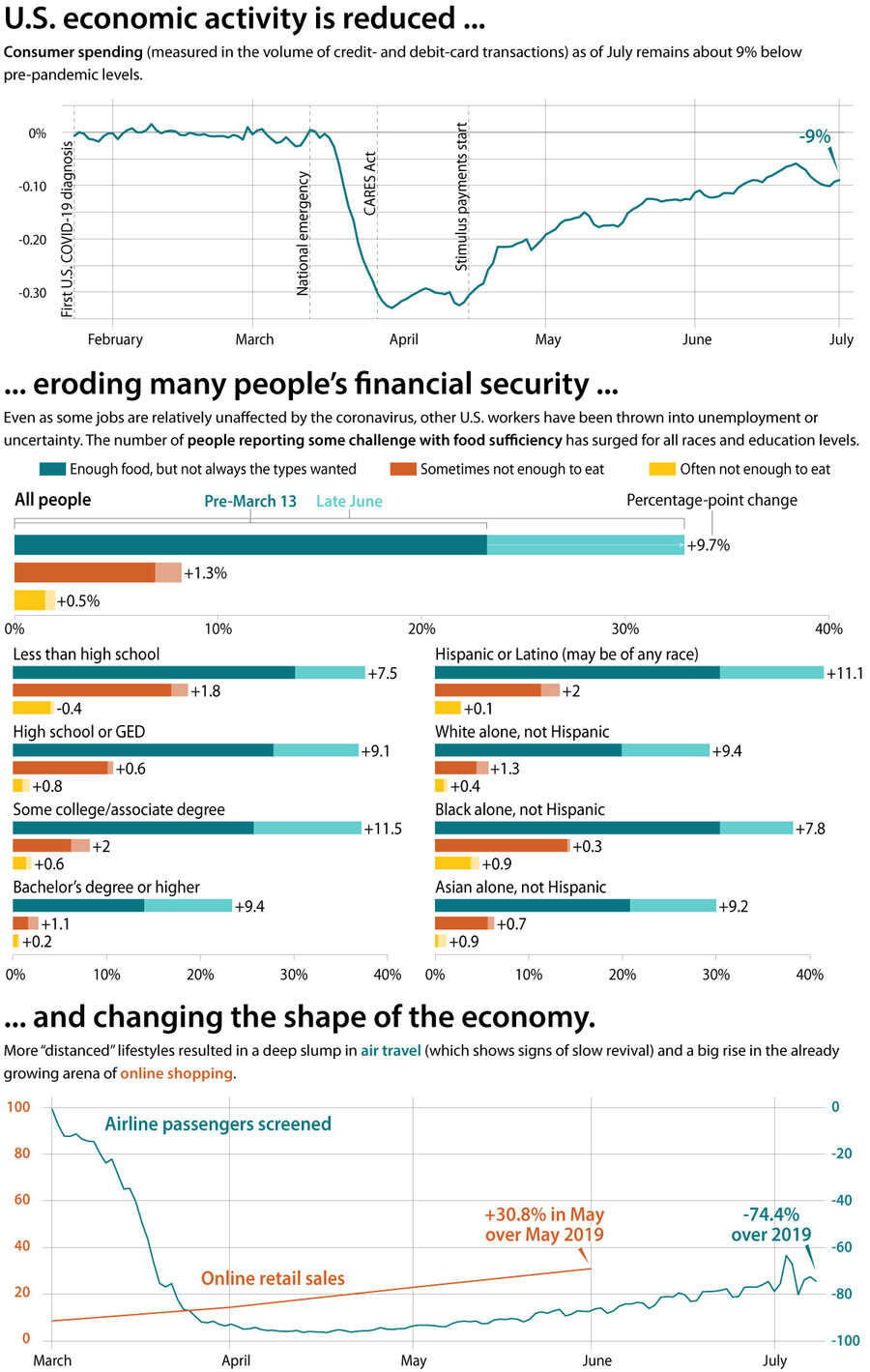Hunger jumps, travel plummets: Tracing pandemic’s ripples in 3 charts
Loading...
It’s no secret that the coronavirus pandemic has altered daily patterns of life. It has upended everything from commuting and dining out to sending children to school or to sports practices.
As the accompanying charts show, efforts to stop the spread of COVID-19 have caused a dramatic economic slump. Some of the changes are expected to be temporary, but such dramatic upheavals can have lasting effects.
Habits like doing more shopping and communicating online could persist. In fact, the stock of Amazon and many other internet-oriented companies has risen, while share prices for many physical-space companies have fallen sharply.
Why We Wrote This
As the United States tries “reopening” amid an ongoing pandemic, it is an opportune moment to look at how the coronavirus is changing life for Americans, and reshaping the economy.
The longer certain sectors of the economy are depressed, the harder it will be for those businesses and jobs to recover. One sobering trend: In recent weeks more unemployment has shifted from “temporary” to “permanent.”
Editor’s note: As a public service, all our coronavirus coverage is free. No paywall.
Some people are coping fine with working at home. And policy changes by some large employers suggest the trend toward more telework will endure beyond the pandemic. But by some measures, more socially isolated lives mean a rise in mental-health challenges.
Massachusetts General Hospital, citing census data, says about one-third of Americans show signs of clinical depression and anxiety, and that such mental health conditions are becoming amplified during the pandemic. One thing people can do for friends or neighbors who may be struggling is to reach out, even in simple ways. “It has a positive effect,” said Maurizio Fava, the hospital’s psychiatrist in chief, in a statement.
Could some positive lifestyle shifts emerge from the pandemic? Some analysts say a side effect could be lower emissions of gases that contribute to global warming. That’s certainly the case for now, with reduced gasoline sales and air travel. U.S. transportation spending as of July 1 is down 49% since February, according to data tracked by Opportunity Insights at Harvard University.
And some people have learned in the lockdowns that quieter lives don’t need to be less meaningful ones. They’d just rather not have social-distance guidelines be a governing force in their lives.
Editor’s note: As a public service, all our coronavirus coverage is free. No paywall.









